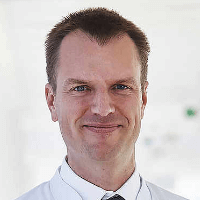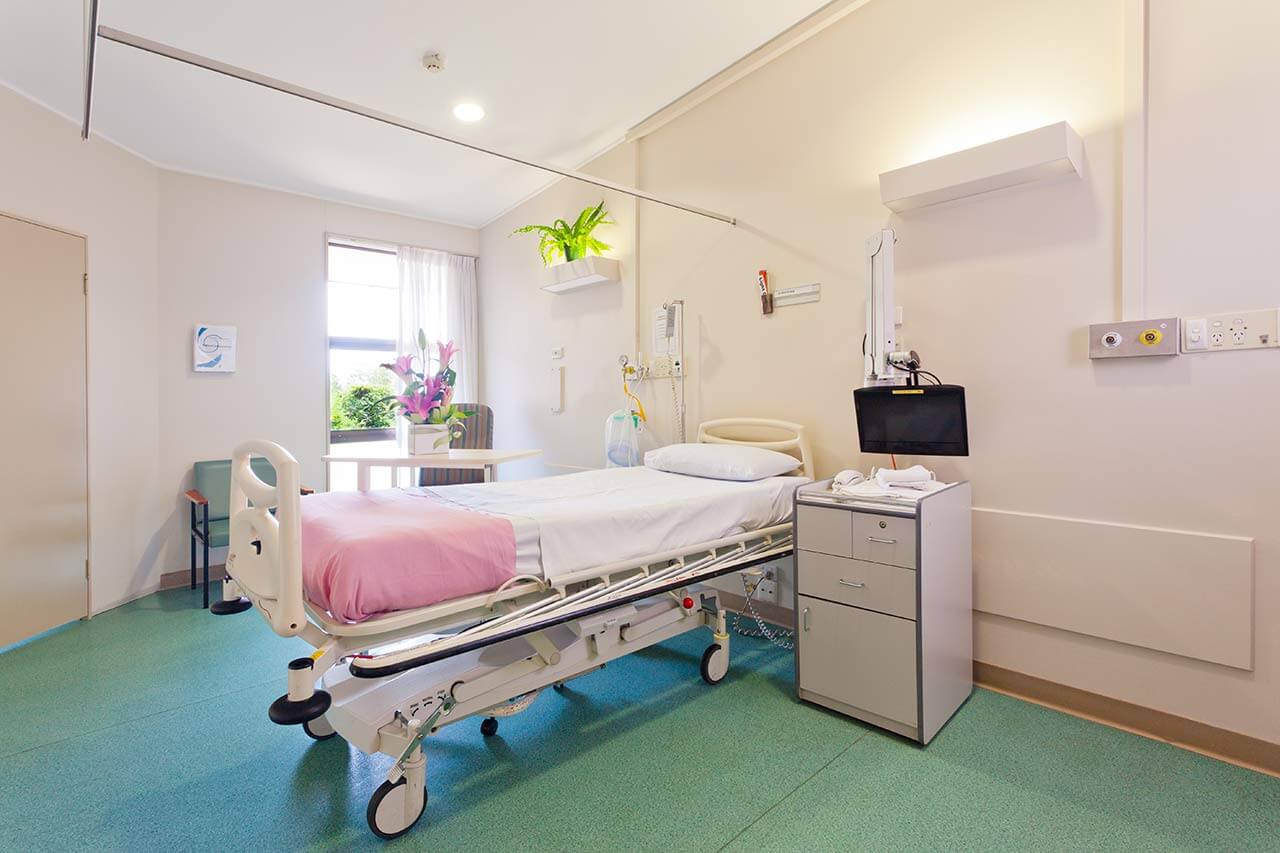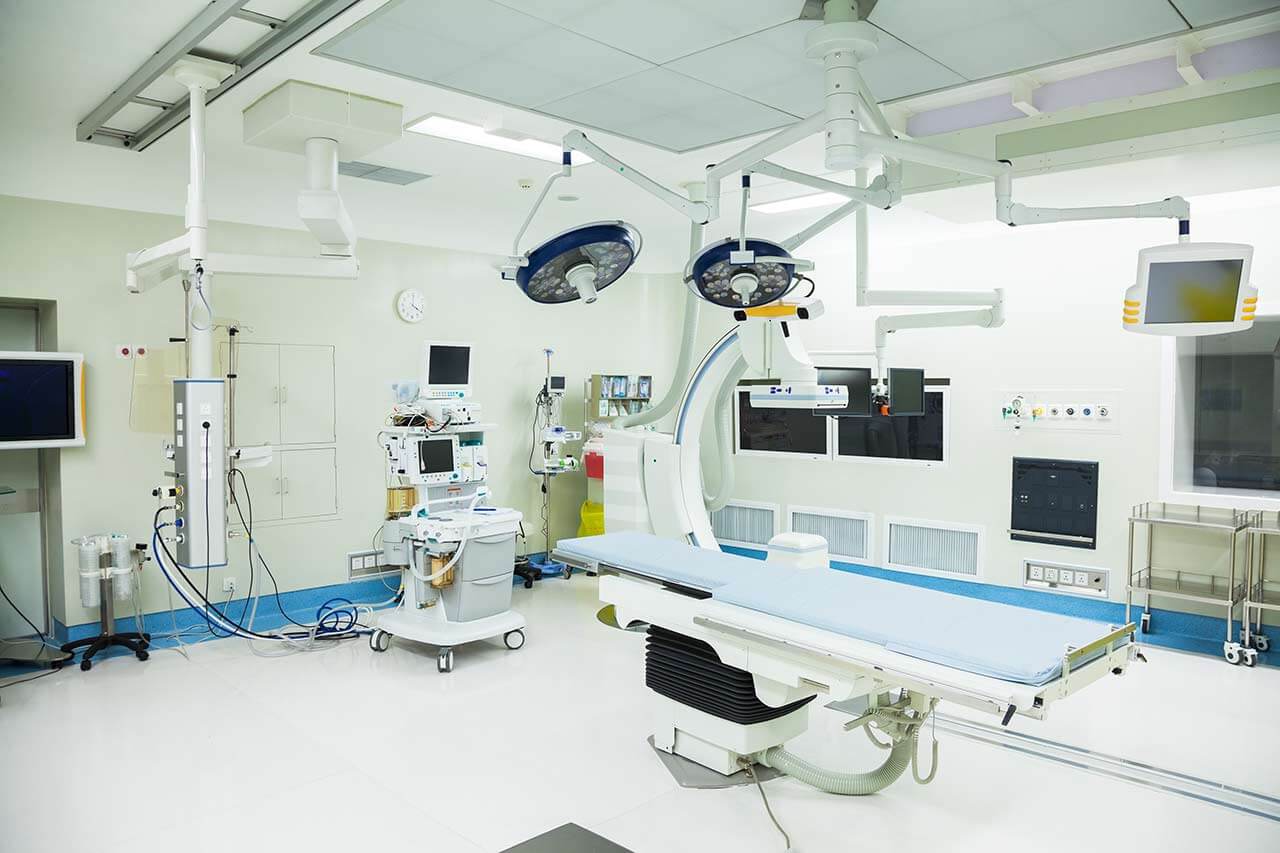
About the Department of Neurosurgery at Hospital Bogenhausen Munich
The Department of Neurosurgery at the Hospital Bogenhausen Munich offers the full range of services in the area of its specialization, and also has a reputation of the largest and leading medical facility of this kind in Germany. The department's medical team successfully performs surgical interventions to treat brain and spinal diseases. The surgeons annually perform more than 2,500 operations of varying degrees of complexity in three high-tech operating rooms of the medical facility. The focus is on the treatment of brain and spinal cord tumors, traumatic brain injuries, spinal stenosis, spondylolisthesis, intracerebral hemorrhages and cerebral aneurysms. The fruitful research, as well as cooperation with the hospitals of the Ludwig Maximilian University of Munich and theTechnical University of Munich allow the department's specialists to offer patients the very latest neurosurgical treatment methods. The use of advanced computer systems and navigation devices guarantees the pinpoint accuracy of each surgical manipulation, which excludes damage to the vital anatomical structures of the brain and spinal cord. The department is headed by Prof. Dr. med. Jens Lehmberg.
For more than 30 years, the surgical treatment of brain tumors has been one of the department's priorities. When performing the surgical intervention, the department's specialists try to totally remove the tumor without causing damage to the healthy adjacent tissues in order to preserve important functions of the brain. The department performs brain surgery only using neuronavigation systems. It is neuronavigation devices that make it possible to identify the tumor boundaries with millimetre precision and avoid the removal of healthy tissues. The tumor can be imagined during surgery by staining with a fluorescent drug, which the patient takes prior to the procedure. As a rule, intraoperative monitoring is used to control the patients' condition. Thanks to neuromonitoring, the department's surgeons can remove tumors located near important regions in the brain or cranial nerves. The surgical resection of brain tumors in most cases is complemented by radiation therapy and/or chemotherapy. The doctors make a decision to carry out these types of therapy at the stage of treatment planning. In addition, an important component of the therapeutic process is psychological care for both patient and his relatives, since the detection of a brain tumor affects the patient's emotional state and can cause the development of depression or apathy.
The department's specialists are proud of their unique clinical experience and high success rates in the field of surgical treatment of spinal diseases: degenerative, traumatic, inflammatory and oncological pathologies of the cervical, thoracic and lumbosacral spine. Spinal surgery requires impeccable precision, and therefore the department's doctors widely use advanced three-dimensional navigation systems and robotic equipment in their clinical practice, which serve as a positioning tool and, in combination with the professionalism of the department's doctors, guarantee an optimal result. These techniques are mostly used for stabilizing interventions on the spine. The department's specialists often use minimally invasive interventions and microsurgical techniques, which require only a few small skin incisions of 2-3 cm. Such surgical interventions contribute to the absence of scars, minimal pain and quick postoperative recovery. The department's neurosurgeons also use minimally invasive surgery to treat spinal stenosis.
The treatment of traumatic brain injuries is also within the competence of the department's medical team. The patients with such injuries require close medical supervision using multimodal neuromonitoring, which includes recording blood circulation parameters, monitoring neurological status, oxygen partial pressure and brain temperature. In especially severe cases, the patients with traumatic brain injuries undergo microsurgical interventions, the main purpose of which is to stabilize the patient's condition and prevent brain damage.
The treatment of intracerebral hemorrhages and cerebral aneurysms is also of great interest. The use of innovative sparing treatments for these pathologies ensure minimal risks to the patients' lives and excellent treatment outcomes.
The main clinical focuses of the department include:
- Diagnostics and treatment of brain tumors (gliomas, meningiomas, pituitary adenomas, acoustic neuromas, lymphomas, etc.)
- Surgical removal of brain tumors using innovative neuronavigation systems and devices for intraoperative monitoring
- Chemotherapy
- Radiation therapy
- Spinal surgery (focus on the treatment of spinal stenosis and spondylolisthesis)
- Navigational surgery
- Robot-assisted surgery
- Minimally invasive surgery
- Microsurgical interventions
- Intervertebral disc replacement
- Stabilizing interventions using rigid and dynamic fixation structures
- Diagnostics and treatment of traumatic brain injuries
- Multimodal neuromonitoring
- Microsurgical interventions to stop bleeding and monitor intracranial pressure
- Intensive care (if indicated)
- Early rehabilitation (in collaboration with the Department of Neurology)
- Diagnostics and treatment of intracerebral hemorrhages
- Diagnostics and treatment of brain aneurysms
- Clipping
- Endovascular treatment with coil implantation (coiling)
- Intensive care (if indicated)
- Early rehabilitation (in collaboration with the Department of Neurology)
- Outpatient neurosurgical interventions
- Outpatient interventions for peripheral nerve compression syndromes (carpal tunnel syndrome, cubital tunnel syndrome)
- Outpatient interventions for back pain (facet joint denervation, periradicular infiltration, facet coagulation)
- Diagnostics and surgical treatment of other neurological disorders
Curriculum vitae
Professional Career
- Since 08.2018 Chief Physician of the Department of Neurosurgery at the Hospital Bogenhausen Munich.
- 06.2017 - 05.2018 Chief Physician of the Department of Neurosurgery at the Hospital Westpfalz Kaiserslautern.
- 05.2011 - 05.2017 Senior Physician with management responsibilities, Department of Neurosurgery, University Hospital Rechts der Isar Munich; key areas of work: skull base surgery, vascular neurosurgery, neuro-oncology and spinal surgery.
- 05.2006 - 04.2011 Senior Physician of the Department of Neurosurgery, University Hospital Rechts der Isar Munich.
- 06.2006 Board certification in Neurosurgery.
- 06.2001 - 04.2006 Assistant Physician, Department of Neurosurgery, University Hospital Freiburg.
- 08.1999 - 05.2001 Internship in Neurosurgery, Institute for Surgical Research, Working Group on Experimental Neurosurgery, University Hospital of Ludwig Maximilian University of Munich.
Academic Activities
- 2017 Extraordinary Professorship at the Faculty of Medicine at the Technical University of Munich.
- 2014 Master of Business Administration in Healthcare, University of Erlangen-Nuremberg (in-service clinical practice).
- 2009 Habilitation and PD title, Technical University of Munich. Subject: "Cerebral microcirculation after global cerebral ischemia".
- 2002 Doctoral thesis defense, Institute for Surgical Research at Ludwig Maximilian University of Munich. Subject: "Mediator function of bradykinin and platelet activation factor in global cerebral ischemia".
Qualifications
- 29.02.2016 Basic Certificate of the German Spine Society.
- 08.12.2016 Master's Certificate from the German Spine Society.
- 01.02.2017 Vascular Neurosurgery Certificate of the German Society of Neurosurgery.
Clinical Interests
- Skull base surgery.
- Neuro-oncology.
- Vascular neurosurgery.
- Spinal surgery.
Memberships in Professional Societies
- AO Spine.
- Congress of Neurological Surgeons (CNS).
- German Society for Microcirculation and Vascular Biology.
- German Society of Neurosurgery (DGNC).
- German Society for Neuro-Intensive Care and Emergency Medicine (DGNI).
- German Society of Skull Base Surgery (DGSB).
- German Spine Society (DWG).
- European Association of Neurosurgical Societies (EANS).
- European Skull Base Society (ESBS).
Photo of the doctor: (c) München Klinik Bogenhausen




